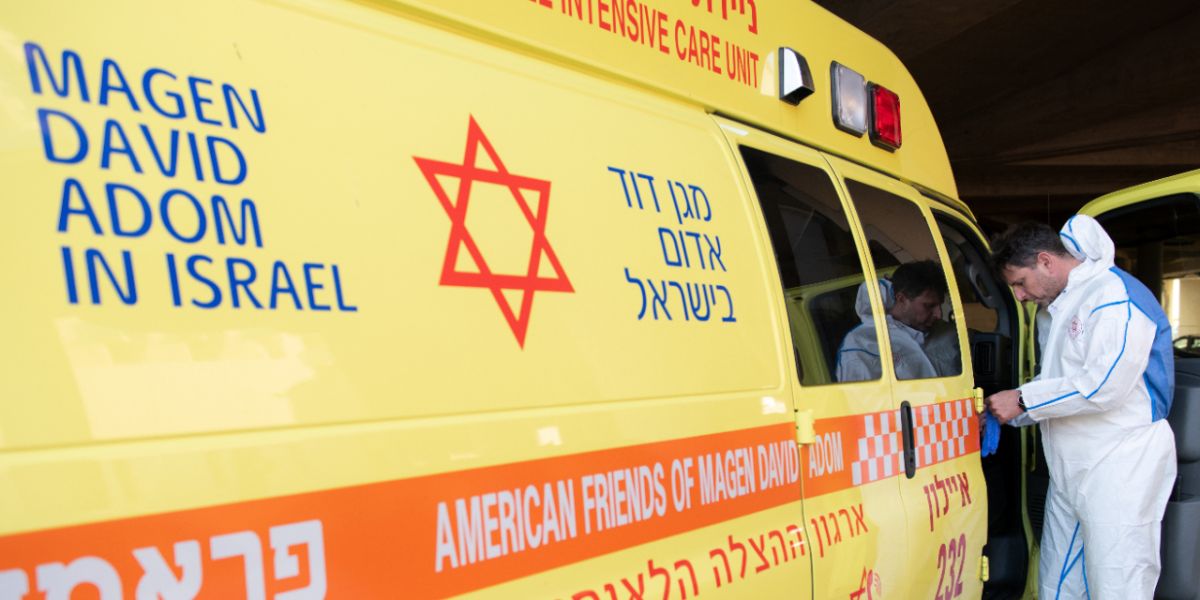
Israel, a nation with a rich historical and cultural heritage, boasts stunning landscapes and exciting activities. However, preparing for possible accidents and emergencies in Israel is essential. Being prepared can give you peace of mind and help you cope with unforeseen situations. In this article, we'll look at crucial accident and emergency preparedness measures in Israel, focusing on available resources, significant emergency contact numbers, and practical advice to ensure your utmost safety.
War and terrorism in Israel
The primary threat in Israel is the specter of war. Encircled by nations with hostile intent, Israel occasionally finds itself targeted by border incursions and conflicts and, less frequently, facing attacks within its borders.
Terrorism poses the most significant danger. The country frequently experiences waves of terror marked by a string of lethal assaults. While the police and military are tirelessly engaged in thwarting planned attacks, it remains a collective responsibility for everyone to stay vigilant.
Feel free to notify the authorities about any unattended package or suspicious conduct without worrying about making a mistake. Offering a mistaken alert is wiser than disregarding a genuine potential danger.
While on a bus or train, inform the staff as they are trained to respond appropriately. If you're out on the street, alert those nearby so they can take cover, contact the police or security personnel, and, if necessary, dial emergency numbers as a final recourse. We're never prepared for this situation, but staying calm is essential.
Attacks are part of the Israeli reality, but like everywhere else in the world today, they are difficult to foresee. In times of great tension, it's crucial to exercise heightened awareness. In more peaceful times, life follows its ordinary course. In times of conflict, staying updated about potential hazards is best achieved through radio broadcasts. Additionally, in the event of a missile attack, warning sirens signal an impending danger.
See also: Israel's healthcare system
Road accidents in Israel
The nation also experiences a significant number of road accidents. Driving in Israel can often be characterized as tense and occasionally aggressive. Adherence to traffic rules and speed limits is sometimes inconsistent. Moreover, the horn is a communication tool frequently utilized by drivers in the country, which might come as a surprise initially.
Collectively, these elements contribute to an atmosphere of rudeness and risk on the roadways. Furthermore, although the nation takes pride in its well-constructed highways connecting major cities like Tel Aviv, Jerusalem, Haifa, and Beer-Sheva, specific roads, notably those in the southern regions, remain basic and inadequately kept. Unfortunately, these routes frequently witness severe accidents.
Similar to trends worldwide, a fresh element has heightened the accident risk: electric scooters, so much so that the authorities are considering banning them.
In the meantime, all pedestrians have to do is be careful, even on sidewalks. Again, the best way to prevent accidents is to be vigilant and respect the Highway Code.
If an accident occurs, the same instincts apply as they would in other countries. In case of injuries, the initial step is to contact the police immediately. The police emergency hotline can be reached at 100, while the emergency services can be reached at 101.
If the accident doesn't result in any injuries, both parties involved are expected to fill out an accident report, and there's no need for police involvement.
Crime in Israel
Crime, if it exists in Israel, is not a sensitive issue and does not disrupt the daily lives of residents or tourists. However, unfortunate accidents are unpredictable. If you experience theft or a physical assault, it's crucial to get in touch with the police. In cases of physical violence, dial the police at number 100 and seek medical assistance if needed. For instances of property damage, report the incident to the nearest police station.
No major health risk in Israel
There are no particular public health problems in Israel, no viruses to protect against before entering the country, and no hygiene precautions to take. Nevertheless, it's essential to recognize that health concerns can still arise unexpectedly.
During a crisis, your initial contact should be with Magen David Adom. If individuals can move safely, they can also head directly to the closest hospital's emergency department. Israeli medical personnel are highly skilled, and the quality of care is excellent.
Emergency numbers:
The police - 100
Magen David Adom (equivalent of the Red Cross) - 101
Firefighters - 102
Internal security - 104
Addresses and telephone numbers of the main police stations: https://www.police.gov.il/eng_contacts.aspx
List of Israeli hospitals and research centers: https://www.science.co.il/medical/Medical-centers.php
We do our best to provide accurate and up to date information. However, if you have noticed any inaccuracies in this article, please let us know in the comments section below.











